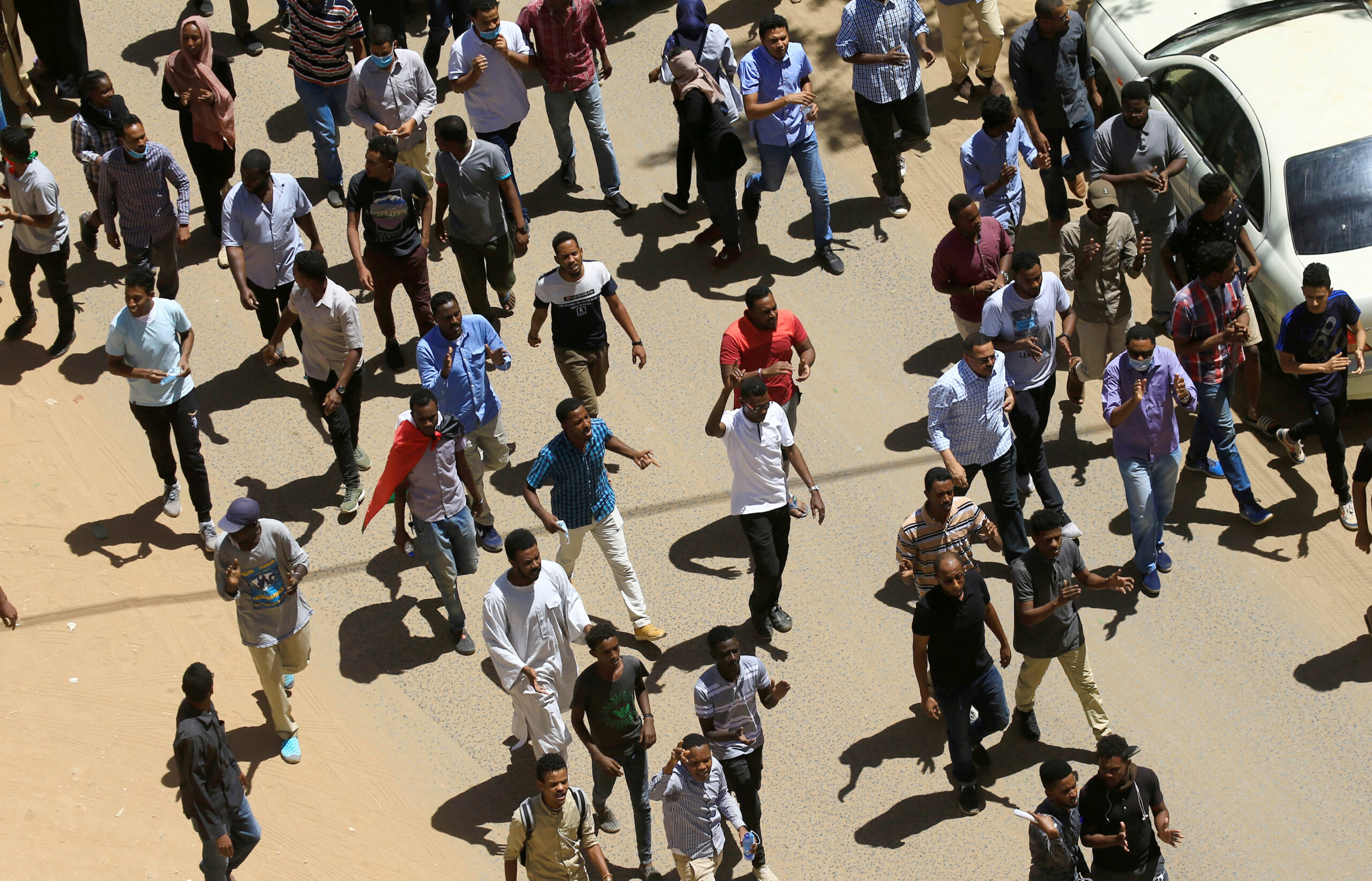
Sudanese army reportedly blocks attempt to disperse protesters

Sudanese soldiers intervened to protect demonstrators on Monday after clashes between security forces and anti-government demonstrators camping outside the Defence Ministry in central Khartoum, witnesses and activists said.
Riot police and secret service personnel reportedly charged the demonstrators with pickup trucks while firing tear gas, trying to disperse a crowd estimated at around 3,000 men and women.
But witnesses and activists said that soldiers guarding the compound had come out to protect the demonstrators, firing warning shots in the air, Reuters reported.
The security forces retreated without firing back and soldiers deployed around the area, while demonstrators chanted “The army is protecting us” and “One people, one army”, witnesses said. There were no immediate reports of casualties.
Information Minister Hassan Ismail, who is also the government spokesman, contradicted the reports, saying:
“The crowd in front of the (military) general command has been cleared completely, in a way that resulted in no casualties among all parties …
“The security apparatus are coherent together and working with positive energy and in harmony,” he added.
Previous attempts by security forces have failed to disperse the protesters, who have vowed to stay until Sudan’s President Omar al-Bashir steps down.
Six people were killed in Khartoum during protests on Saturday and Sunday and one more died in the western region of Darfur, the interior minister told parliament.
Bishara Jumaa also said in the statement, a copy of which was seen by Reuters, that 15 civilians and 42 members of the security forces were injured in the protests and that 2,496 protesters were arrested in Khartoum.
Mostly small but sustained protests have been staged regularly since December, when the government tried to raise bread prices.
Sudan’s 40 million people are suffering from a severe economic crisis caused in part by years of U.S. sanctions and in part by the loss of oil revenues since South Sudan seceded in 2011.
The protests have since turned against Bashir, a former army general who came to power in a military coup in 1989.






